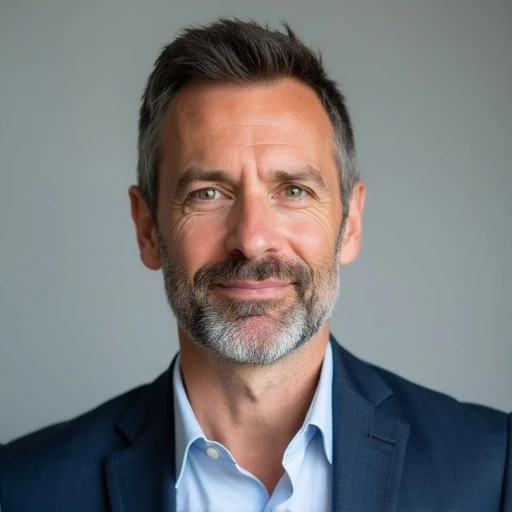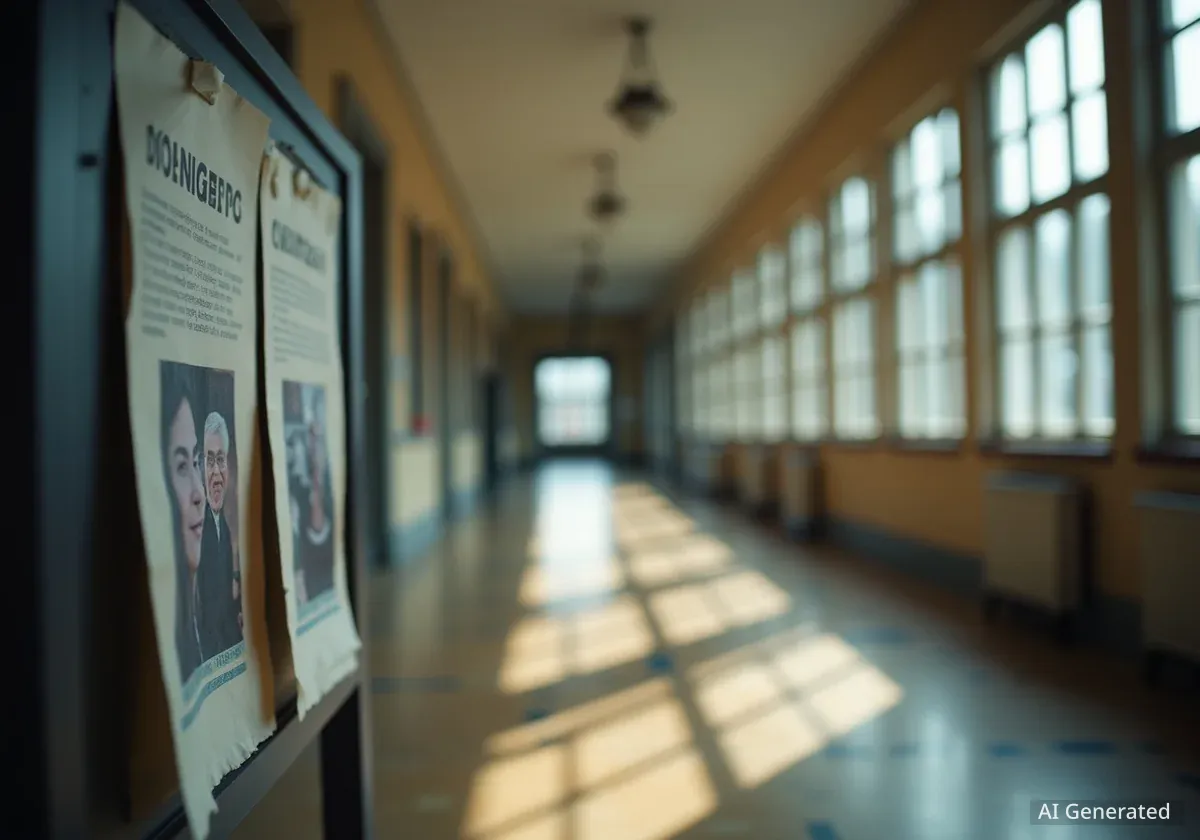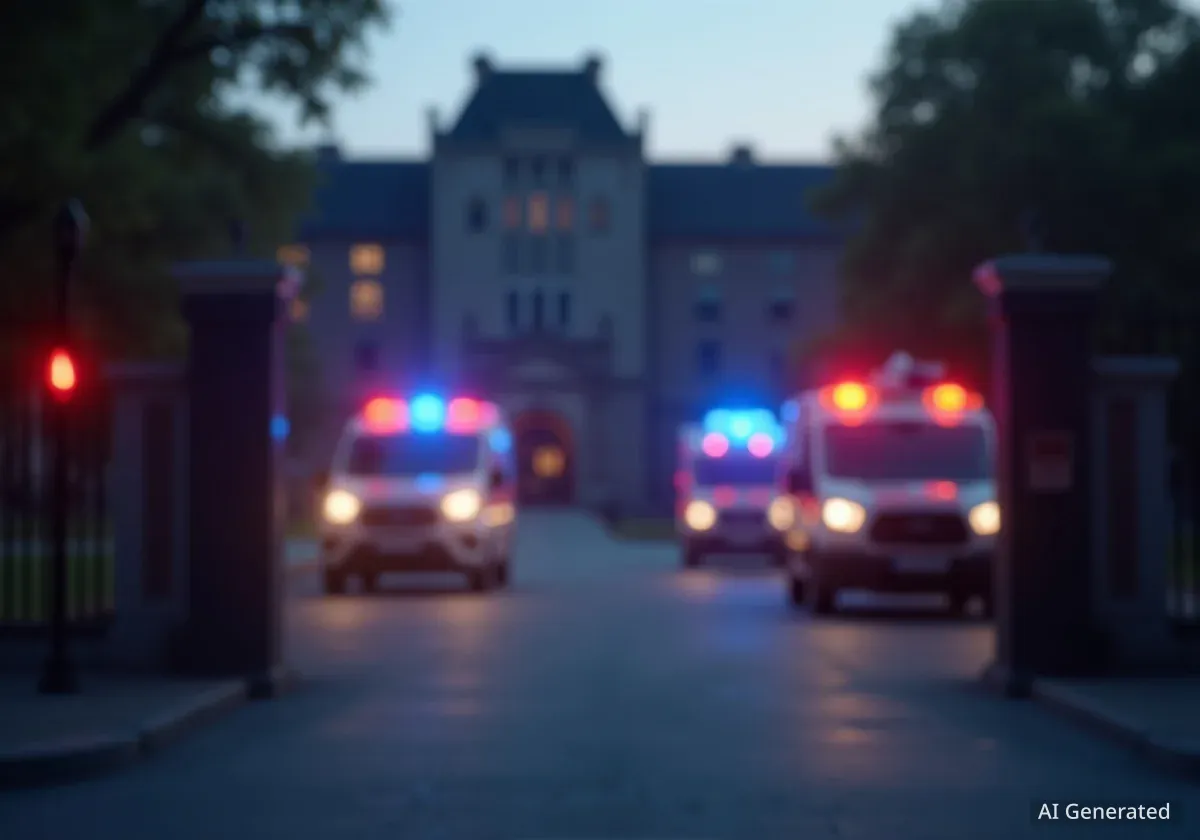Following the fatal shooting of conservative activist Charlie Kirk at Utah Valley University, colleges and universities across the United States are facing intense scrutiny over their commitment to free speech. The Foundation for Individual Rights and Expression (FIRE) is currently reviewing 87 cases where students or faculty have been investigated or disciplined for their comments on the event.
While some institutions have taken disciplinary action, including terminations, others have publicly reaffirmed their dedication to First Amendment principles, creating a stark divide in how higher education is navigating the politically charged aftermath.
Key Takeaways
- The Foundation for Individual Rights and Expression (FIRE) is reviewing 87 cases of potential free speech violations on college campuses related to Charlie Kirk's death.
- Several universities, including the University of Louisville and Middlebury College, have issued statements defending free expression.
- Other institutions, such as the University of Mississippi and Clemson University, have fired employees for their online comments.
- Federal officials have urged crackdowns on certain types of speech, a move criticized by civil liberties advocates as a threat to protected expression.
A National Divide on Campus Speech
The response from American universities to commentary surrounding the assassination of Charlie Kirk has highlighted a significant split on the issue of free expression. FIRE, a civil liberties watchdog group, has become a central observer in this unfolding situation, tracking actions taken by college administrations nationwide.
The organization reports that it has identified 87 separate incidents involving students or faculty who faced investigation or punishment. These cases stem from social media posts, on-campus posters, and verbal comments connected to Kirk's death.
"This moment is revealing which institutions are prepared to stand by the First Amendment — and which ones aren’t," Connor Murnane, FIRE’s chief of staff for campus advocacy, told Newsweek.
The group, known for its annual list of the "Worst Colleges for Free Speech," has shifted focus to also praise institutions that are withstanding public pressure to censor or punish controversial speech.
Institutions Upholding First Amendment Principles
Despite the pressure, several universities have taken a firm stand in support of free speech. These schools are being highlighted by FIRE as examples of institutions adhering to their stated principles of open inquiry and expression, even when the speech is considered offensive by many.
Examples of Pro-Speech Stances
- University of Louisville: After posters about Kirk's death appeared on campus, President Gerry Bradley released a public statement. He affirmed, "We are steadfast in our support for the First Amendment and the open exchange of ideas on campus."
- Middlebury College: President Ian Baucom addressed the controversy by stating that “academic freedom belongs to everyone, especially those we disagree with.” This stance was notably praised by political scientist Charles Murray, who was the target of a violent protest at the college in 2017.
- University of Wyoming: In response to criticism aimed at its student newspaper, the university organized a public panel. The event featured faculty, students, the president, and the provost discussing the importance of free speech and civil discourse.
- University of Kansas: The institution was commended for its refusal to discipline an employee for personal social media posts related to Kirk, adhering to its existing policies on employee speech.
Murnane commented on these positive examples, noting that some universities are "striking the right notes so far" in balancing community concerns with constitutional obligations.
Background on FIRE
The Foundation for Individual Rights and Expression (FIRE) is a non-profit, non-partisan organization founded in 1999. Its mission is to defend and sustain the individual rights of all Americans to free speech and free thought, with a particular focus on academic freedom in higher education.
Dozens of Universities Under Scrutiny
In contrast to the schools defending expression, many others are being criticized for what FIRE describes as improper punishment of protected speech. The organization has formally contacted at least 17 institutions, with dozens more under active review.
The list of universities flagged by FIRE includes a wide range of public and private institutions, indicating the issue is not confined to one type of school or region. Among those named are major public universities like the University of Texas at Austin and UCLA, as well as regional schools such as Florida Atlantic University and Missouri State University.
Universities Formally Contacted by FIRE
The list of schools that have received formal communications from FIRE regarding alleged free speech violations includes: Auburn University, Clemson University, Howard University, Rutgers University, Virginia Tech, and the University of Nebraska–Lincoln, among others.
Disciplinary Actions Taken
Several universities have taken swift and public disciplinary action against employees for their commentary.
The University of Mississippi fired a staff member after the individual reposted comments about Kirk that the university labeled “hurtful [and] insensitive.” Similarly, Middle Tennessee State University terminated an employee for posting what officials described as “callous comments.”
Perhaps the most high-profile case occurred at Clemson University. Initially, the administration defended the free speech rights of faculty who mocked Kirk's death online. However, after three days of intense public and political pressure, which reportedly involved the White House, the university reversed its position and fired three employees.
Federal Officials Urge Crackdown
The controversy has extended beyond campus borders, drawing commentary and calls for action from high-level federal officials. This involvement has alarmed free speech advocates, who argue it creates a chilling effect on public discourse.
Vice President JD Vance, speaking on Kirk's radio program, encouraged listeners to report individuals who appeared to celebrate the killing. "Call them out. And, hell, call their employer," he stated.
Attorney General Pam Bondi initially promised to prosecute individuals for "hate speech" but later clarified her focus would be on speech that incites violence or involves doxxing. Meanwhile, Education Secretary Linda McMahon praised universities that have “acted swiftly to condemn and hold accountable those who have crossed this ethical line.”
Civil liberties groups argue that this response from government officials threatens established legal protections for speech. Aaron Terr, FIRE’s director of public advocacy, expressed concern over the government's role.
"Unfortunately, the administration’s response has been disappointing and deeply chilling," Terr said. "They have not sought to reaffirm the values of free speech but are instead threatening to undermine them further."
The ongoing situation continues to test the boundaries of protected speech, academic freedom, and institutional responsibility in a deeply polarized political climate.





